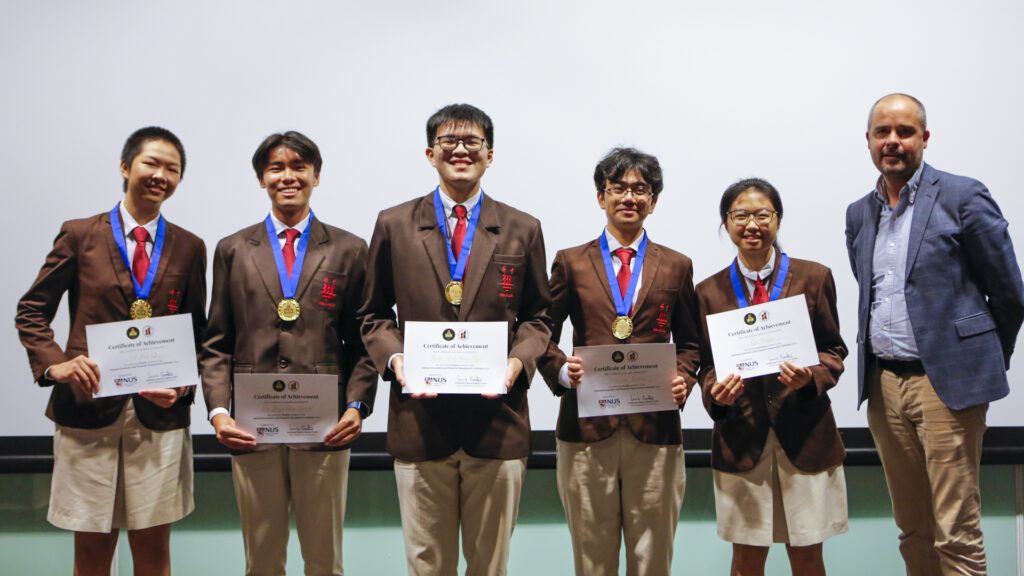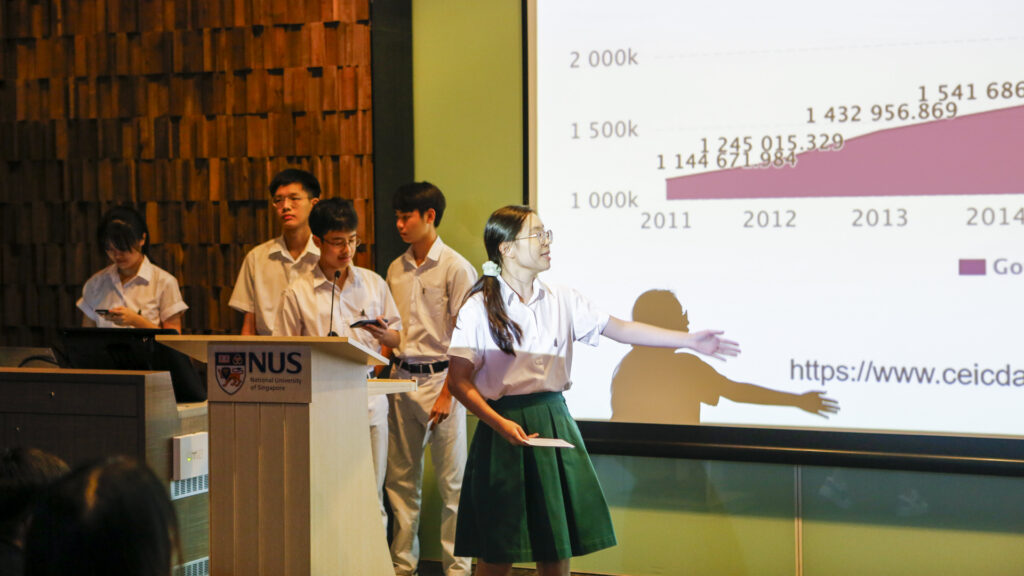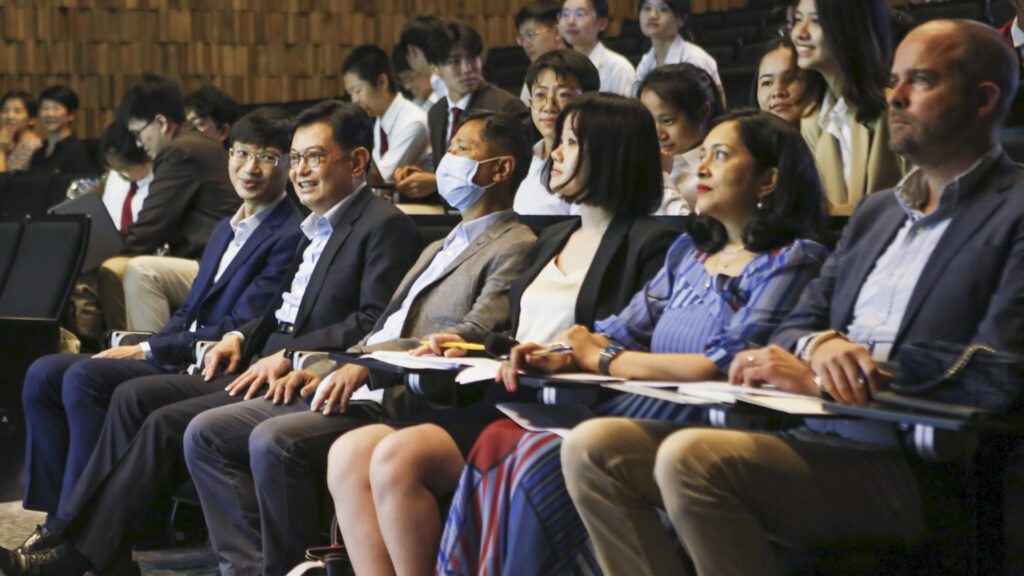Students Explore World of Investing and Financial Markets at NUS Economics Society Competition
July 21, 2023
IN BRIEF | 5 min read
- The annual challenge, organised by the student-led NUS Economics Society since 2007, attracted participation from more than 200 pre-tertiary students representing 14 schools in Singapore.

A team of five students from Hwa Chong Institution (HCI) emerged winners of this year’s National Economics and Financial Management Challenge, hosted by the NUS Economics Society, edging out 47 other teams to bag the top prize.
The annual challenge, organised by the student-led society since 2007, attracted participation from more than 200 pre-tertiary students representing 14 schools in Singapore. Themed “Financial Crises and Bank Runs”, this year’s edition will give the top performing individuals a chance to represent Singapore in the International Economics Olympiad and Australasian Economics Olympiad that are taking place from July to August this year.
Games and Simulations Test Participants’ Resolve and Decision-making
This year’s theme was prompted by the growing usage of online brokers and trading platforms, the rise of cryptocurrency investments among young investors, and the increased post-pandemic volatility in global financial markets.
The annual competition assessed participants via three exciting competitive rounds comprising tests, a game simulation and a case competition over the course of four weeks, giving them the opportunity to learn about the basics of investing while analysing markets to identify policies that could prevent the world from plunging into a financial crisis.
Grouped into teams of four or five, participants in the first round were tested on their economics and financial knowledge through an online assessment. The top 21 scoring teams moved on to the second round where they had to make critical investment decisions to maximise their returns in a live simulation scenario of a stock market and floor trading.

The eight best teams went on to battle it out in the final round, buckling down to analyse a real-life case study – that of China’s troubled financial markets due to the country’s zero-COVID policies during the pandemic. The teams identified the symptoms and the significance of the causes of China’s financial instability, and recommended policies which the Bank of China could adopt to prevent the country’s lapse into a financial crisis.
After much intense deliberation by an esteemed panel of judges including senior representatives from HSBC, Goldman Sachs and the NUS Faculty of Arts and Social Sciences’ (FASS) Department of Economics, the top prize was awarded to Team Silicon Heights from Hwa Chong Institution for their detailed analysis and strong evidence-based policy recommendations for the Chinese economy.
A Learning Experience Beyond the Classroom
The competition finals held on 17 June also saw Guest-of-Honour, Deputy Prime Minister and Coordinating Minister for Economic Policies, Mr Heng Swee Keat, speaking about the importance of economics and its applications to his various jobs, as well as its continued relevance today. DPM Heng also urged participants to remain curious and to keep up with the latest research in the field.

Reflecting on the experience, 18-year-old Team Silicon Heights team leader Qiu Xinyu shared, “With each round that covered various aspects of economics and finance ranging from investment to macroeconomic policy, we have grown as budding economists and grown closer as friends and as a team. Being able to hear from, and network with various industry experts, have also furthered our exploration of economics and finance as a career path, as well as the state of economics today.”
Echoing similar sentiments, 18-year-old Dunman High School student from Heng Yi Wang, whose team came in third place, said, “Just like how short-term sacrifices are necessary for long-term gains in a game of chess, round three’s policy suggestions further educated us on the inexorable trade-offs that will always be incurred when implementing policies. We also managed to network with industrial experts and academics to better understand what working in the financial sector entails.”
The competition’s project director and Year 1 FASS economics student Celest Lam was heartened to witness the high quality of analyses and proposals by participating teams. The exercises demonstrated the students’ impressive knowledge of economics and finance. “Moving forward, we are more motivated than ever to build upon this momentum to create more opportunities for pre-tertiary students to explore their passion for the field.
This story by the NUS Economics Society first appeared in NUSnews on 20 July 2023.

